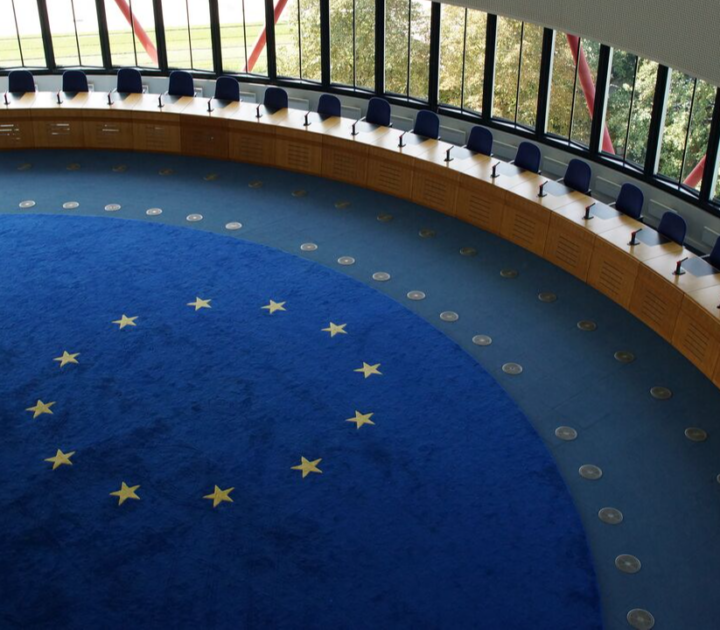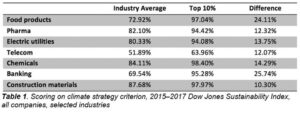
Sustainability and the art of doing less
Temperatures keep rising at an alarming pace. According to the UN weather agency, CO2 levels are at their highest in the last 650,000 years, and so are the average temperatures, with the world’s nine warmest years all having occurred since 2005. With the battle for sustainability heating up, banks such as ING and DBS are rolling out sustainability-linked loans and investors are increasingly factoring in sustainability performance in their investment decisions. As BlackRock, the globes biggest investment firm concludes: “There can be little downside to gradually incorporating climate factors into the investment process — and even potential upside”.
In response, companies and executives must develop a new sense of urgency, moving their sustainability programs from the realm of compliance and iterative improvements to that of a key driver of performance and innovation, which requires embedding it more deeply into their core strategies. Recent IMD research proposes that companies implement a combination of direction and speed as already applied by sustainability champions such as Unilever, Umicore, DSM and Novozymes.
The concept of “Vectoring”
In the associated book encompassing the research, Winning Sustainability Strategies by professor Benoit Leleux and Executive in Residence Jan van der Kaaij, the effective design and implementation of a stronger sense of focus, moving sustainability programs forward more rapidly, is dubbed Vectoring. It is analogous to the navigation service provided by an air traffic controller, whereby the controller decides on a particular path for the aircraft, composed of specific legs or vectors, which the pilot then follows. Sustainability programs that are looking for their North Star or Polaris, can lack air traffic controllers or often pilots for that matter. The absence of directional bearings, or the selection of inadequate ones, lead to misguided, uncoordinated actions and usually unsatisfactory results from sustainability initiatives. To develop the concept of Vectoring, practitioner cases from sustainability leaders were examined in depth together with the anonymized results from ten selected industries in the Dow Jones Sustainability Index (DJSI) benchmark between 2015 to 2017 from automotive, banking, chemicals, construction materials, electric utilities, pharmaceuticals, food products, professional services, textiles and telecom.
Sustainability leaders possess superior climate strategies
Climate change is often portrayed as one of the most important and truly global material issues, with the potential to destruct entire nations, dramatically change agricultural practices or force massive migrations of people. With most, if not all, industries likely to be impacted by climate change, albeit to varying degrees, companies face the need to design appropriate strategies to tackle the challenge.
Investors are increasingly embedding this fact into their investment decisions. In 2016 BlackRock’s Scientific Active Equity (SAE) team found that U.S. companies with higher climate scores tend to be more profitable and generate higher returns on assets. Selecting a portfolio that was biased on CO2 performance, chosen from Russell 3000 Index companies, the weighted average of CO2 emissions came out almost 50% below the benchmark average. Financially, this same portfolio selection outperformed the Russell benchmark by seven percentage points.
The climate strategy criterion is one of more than 20 criteria that make up the full RobecoSAM assessment, making it one of the most comprehensive of its kind. Comparing the average score on climate strategy with the marks of the top decile performers over the three-year research period, demonstrates that sustainability leaders outperform industry averages by 16%.
Even more striking is the difference in performance when comparing the selected industries with each other; the scores of the highest-scoring industry (Construction Materials) and lowest-scoring industry (Telecom) differ 36%, on a topic that is recognized as being highly relevant for both industries.
While most companies look at the eminent risks associated with a changing climate, sustainability leaders were found to similarly seek and seize the business opportunities linked to this global challenge. In part this explains the striking score differences between those sustainability leaders and their sector average. With the investment community advancing their approaches for the valuation impact of non-financial ESG data, carbon pricing on the rise according to the Worldbank and banks such as ING and DBS lining up to align their portfolio with the Paris Agreement 2 degrees scenario through sustainability-linked loans, companies are wise to rethink their approach to climate change and sustainability in general and capture the concept of “Vectoring”.
More about the research
Winning Sustainability Strategies (Palgrave 2018, Leleux and Van der Kaaij) presents numerous award-winning cases from IMD business school and examples from companies such as Unilever, Torres, Patagonia, Tumi, DSM and Umicore alongside original ideas based upon 20 years of consulting experience. Based upon practitioner cases and data analysis from the Dow Jones Sustainability Index, the book offers practical suggestions for improved effectiveness of sustainability strategies. This includes designing and executing new sustainability programs, embedding the SDGs within company strategy and assessing the impact of sustainability programs on competitiveness and valuation. Offering directions for CFOs to shift companies from integrated reporting to integrated thinking in order to accelerate their sustainability programs, Winning Sustainability Strategies shows how to achieve purpose with profit and how to do well by doing good.
Benoit Leleux is the Stephan Schmidheiny Professor of Entrepreneurship and Finance at IMD.
Jan Van der Kaaij is Executive in Residence at IMD.
Research Information & Knowledge Hub for additional information on IMD publications

in I by IMD 10 April 2024

IMD World Competitiveness Center Report, 8 April 2024

in I by IMD 20 March 2024


in I by IMD Magazine March 2024, no. 13, p. 64-72

in Small Business Economics 14 March 2024, ePub before print, https://doi.org/10.1007/s11187-024-00907-1
Research Information & Knowledge Hub for additional information on IMD publications
Research Information & Knowledge Hub for additional information on IMD publications
Research Information & Knowledge Hub for additional information on IMD publications
in I by IMD 10 April 2024
Research Information & Knowledge Hub for additional information on IMD publications
IMD World Competitiveness Center Report, 8 April 2024
Research Information & Knowledge Hub for additional information on IMD publications
Research Information & Knowledge Hub for additional information on IMD publications
in I by IMD 20 March 2024
Research Information & Knowledge Hub for additional information on IMD publications
Research Information & Knowledge Hub for additional information on IMD publications
Case reference: IMD-7-2282 ©2022
in I by IMD Magazine March 2024, no. 13, p. 64-72
Research Information & Knowledge Hub for additional information on IMD publications
in Small Business Economics 14 March 2024, ePub before print, https://doi.org/10.1007/s11187-024-00907-1
Research Information & Knowledge Hub for additional information on IMD publications
